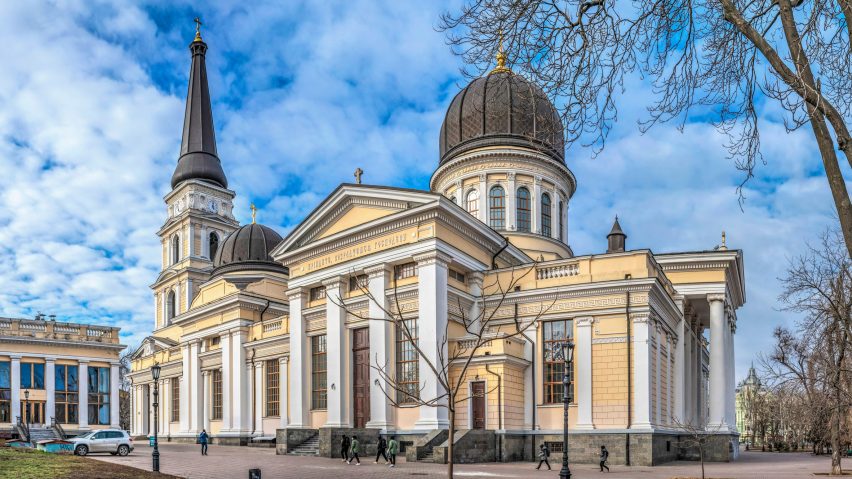
UNESCO condemns Russia's destruction of Odesa buildings as "attack against culture"
UNESCO director general Audrey Azoulay has condemned Russia's attack on historic Odesa, which damaged 25 architectural monuments including the Spaso-Preobrazhensky Cathedral.
The attack on the UNESCO world heritage site, which took place earlier this week, was criticised by Azoulay for damaging cultural buildings.
"This outrageous destruction marks an escalation of violence against cultural heritage of Ukraine," she said.
"I strongly condemn this attack against culture, and I urge the Russian Federation to take meaningful action to comply with its obligations under international law, including the 1954 Hague Convention for the Protection of Cultural Property in the Event of Armed Conflict and the 1972 World Heritage Convention."
In total, the attack damaged around 50 buildings including 25 architectural monuments, Ukraine president Volodomyr Zelenskyy said.
Spaso-Preobrazhensky Cathedral hit by missile
Among the monuments that were struck by missiles was the 18th-century Spaso-Preobrazhensky Cathedral.
"One of the most valuable cathedrals in Ukraine," Zelenskyy said.
"In 1936 it was looted and destroyed by the Bolsheviks. The cathedral was restored in independent Ukraine. And now terrorists are trying to destroy it again."
The Greek consulate in the city was also damaged in the attack. According to Zelenskyy, the damaged buildings will be restored.
"There will be Spaso-Preobrazhensky Cathedral in Odesa," he said. "We will definitely restore everything."
UNESCO said it will "continue to engage with World Heritage site managers" and that it will identify the most urgent needs for assistance.
Destruction "could amount to a war crime"
The organisation will send a mission to Odesa "in the coming days" to do a preliminary assessment of the damages of the attack, which killed at least two people.
It added that intentional destruction of cultural sites could be a war crime.
"Intentional destruction of cultural sites may amount to a war crime, as acknowledged also by the United Nations Security Council – of which the Russian Federation is a permanent member – in Resolution 2347," UNESCO said.
Russia's invasion of Ukraine, which began on 24 February 2022, has previously damaged the constructivist Railway Workers Palace of Culture in Kharkiv, which was hit by missiles in August of last year.
In June 2022, UNESCO reported that 143 culturally significant buildings have been damaged in Ukraine since the invasion began.
The country is already looking at rebuilding, with architects and designers telling Dezeen that they are "rebuilding under missiles". British architect Norman Foster has also revealed his reconstruction masterplan for Kharkiv.
The image of the Spaso-Preobrazhensky Cathedral, taken before the attack, is courtesy of Shutterstock.